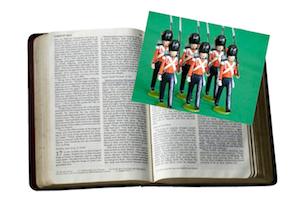 The other day a friend included this in a Facebook post:
The other day a friend included this in a Facebook post:
“I take Jesus much more seriously than I do Paul.”
That statement didn’t sit well with me.
On the one hand, well… yeah. Jesus is Lord of Lords. He should be taken much more seriously than any other human.
But it seems to me that this friend was echoing a sentiment that I hear in the church today, a need to downplay the writings of Paul and emphasize the gospels. He wasn’t really talking about Jesus and Paul as individuals, but about their teachings.
Historically, churches of Christ have often been guilty of doing just the opposite, preaching Paul and ignoring the gospels. I’ve written before about the strange doctrine that would seek to relegate the gospels to a time long past, discounting their relevance and applicability to people today. That’s an extreme form of the traditional view that argues “The New Testament begins with Acts 2.” (I’ve heard that exact statement)
Today’s view would seem to be the expected pendulum swing that happens so often as churches, as people react to one view by going to the opposite extreme.
I want to spend a little time examining the “gospels only” approach to the New Testament. I’ll include the “red letters only” view as well, which tries to take quotes from Jesus and elevate them above the rest.
Feel free to voice some opinions now or wait until we start trying to cook some of these half-baked thoughts.


